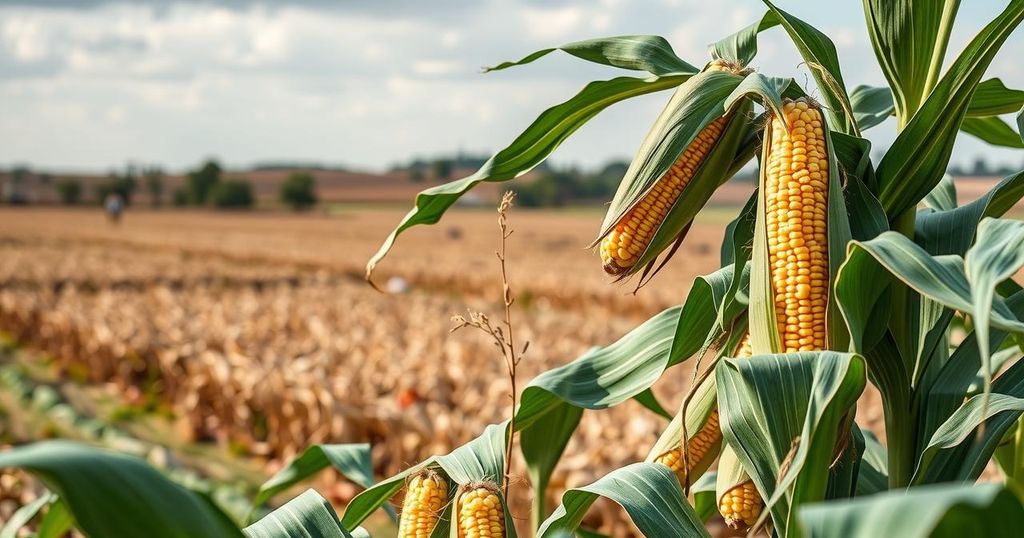Argentine dry weather has boosted soybean and corn prices on the CBOT due to yield uncertainty, while Kazakhstan has ramped up grain exports significantly. Recent wheat price increases further reflect global supply challenges exacerbated by these weather disruptions, contrasting with protests by French farmers against unfair competition.
In recent developments, soybean and corn futures on the Chicago Board of Trade (CBOT) have experienced an increase due to unfavorable dry weather conditions in Argentina, raising concerns about potential crop yields. Specifically, soybean prices surged by 1.29%, reaching $10.04 per bushel, while corn prices rose by 0.78% to $4.54 per bushel. These changes come despite some recent rainfall that had initially offered hope for the new 2024/25 crop yields. Parallel to this, wheat futures also advanced by 0.8%, now standing at $5.33 per bushel, driven by global weather-related supply issues. In contrast, Kazakhstan has made significant strides in its grain exports, having shipped 3.7 million metric tons from September to December, which constitutes a remarkable 54% increase over the previous year. Nevertheless, agrarian discontent persists, as French farmers have protested against perceived unfair competition and restrictive agricultural policies.
The interplay of adverse weather conditions, particularly in agricultural powerhouses such as Argentina, significantly influences global commodity markets. As Argentina grapples with prolonged dry spells that threaten crop yields, grain prices are subjected to upward pressure. Additionally, geopolitical dynamics are shifting, as seen in Kazakhstan’s robust grain export strategy, highlighting the broader implications of weather disruptions and socio-political factors on agricultural trade and economic stability.
In summary, the recent rise in soybean and corn prices is a direct result of dry weather in Argentina, heightening concerns regarding crop yields. This situation underscores the fragility of global agricultural supply chains amid climatic adversities. Furthermore, the contrasting success of Kazakhstan in grain exports exemplifies how countries can adapt to changing market conditions. Attention must be paid to these developments as they portend future volatility in commodity prices and broader economic implications.
Original Source: finimize.com






